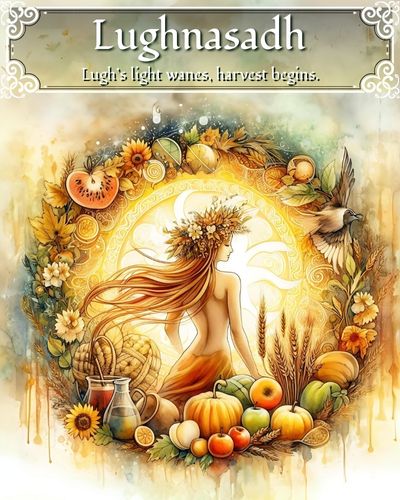
Approx. Reading time: About 7 Minutes

Introduction
Vestalia: Honoring the Sacred Hearth
Vestalia is an ancient Roman festival dedicated to Vesta, the goddess of the hearth and home. This sacred celebration holds great significance in Roman culture, focusing on the importance of the hearth and the sacred flame that symbolizes the warmth, protection, and continuity of the household. In this article, we will explore the history, traditions, and modern practices associated with Vestalia, shedding light on the enduring legacy of this revered Roman festival.

Exploring the Ancient Roman Festival Honoring Vesta
Vestalia, an ancient Roman festival dedicated to Vesta, the goddess of the hearth and home, holds great significance in Roman mythology and religious practices. This sacred celebration reflects the reverence and importance placed on the hearth in Roman society. In this section, we will delve into the history and origin of Vestalia, tracing its roots to ancient Roman mythology and exploring its connection to the eternal flame that symbolized the collective hearth of Rome.
Vestalia and Vesta in Ancient Roman Mythology:
Vestalia finds its roots in the rich tapestry of ancient Roman mythology. Vesta, one of the most revered goddesses of the Roman pantheon, personified the hearth and its sacred flame. She was considered a guardian deity of the city and held a crucial role in maintaining the eternal flame that represented the collective hearth of Rome. Vesta’s association with the hearth and home made her an integral part of daily life and the spiritual well-being of the Roman people.
Establishment of Vestalia by King Numa Pompilius:
The festival of Vestalia is believed to have been established during the reign of King Numa Pompilius, a legendary figure who codified many of Rome’s religious practices. Under his rule, the significance of Vesta and the hearth grew, leading to the establishment of Vestalia as an annual festival. King Numa recognized the vital role that Vesta played in maintaining the spiritual and physical well-being of the city and sought to honor her through this sacred celebration.
The Eternal Flame and the Collective Hearth of Rome:
The eternal flame, symbolizing the collective hearth of Rome, held immense importance during Vestalia. It was believed to be a sacred source of divine protection, purity, and continuity for the city. The Vestal Virgins, the sacred priestesses dedicated to Vesta’s service, were responsible for tending this eternal flame, ensuring its constant presence. The flame represented not only the physical warmth and nourishment of the hearth but also the spiritual and communal bonds that united the Roman people.
Vestalia, rooted in ancient Roman mythology, pays homage to Vesta, the revered goddess of the hearth and home. This festival holds a significant place in Roman religious practices, highlighting the central role of the hearth and the eternal flame in Roman society. Vestalia’s origin can be traced back to the reign of King Numa Pompilius, who recognized the importance of Vesta and codified her worship through this annual celebration. By honoring the eternal flame and the collective hearth of Rome, Vestalia reaffirmed the sacred bond between the goddess, the city, and its people.
Celebrating Vestalia in Ancient Rome
Vestalia, an annual festival held in ancient Rome, paid tribute to Vesta, the goddess of the hearth and home. This celebration, spanning from June 7th to June 15th, was marked by a series of rituals and ceremonies conducted by the Vestal Virgins, who were devoted to Vesta’s service. In this section, we will explore the rich traditions and customs associated with celebrating Vestalia in ancient Rome, with a particular focus on the significant role played by the Vestal Virgins and their sacred procession to the Tiber River.
Rituals and Ceremonies of Vestalia:
Vestalia was a time of heightened reverence for Vesta and her sacred flame. At the Temple of Vesta, the Vestal Virgins performed rituals and ceremonies to honor the goddess and ensure the well-being of Rome. The highlight of Vestalia was the procession of the Vestal Virgins to the Tiber River, where they fetched water for purification purposes. This water, believed to hold sacred properties, was then used to cleanse the Temple of Vesta and sprinkle on the sacred hearth, symbolizing the renewal and sanctity of the eternal flame.
The Role of the Vestal Virgins:
The Vestal Virgins, a select group of priestesses, played a pivotal role in the celebration of Vestalia. Chosen as young girls, they dedicated themselves to the service of Vesta and were tasked with maintaining the eternal flame, safeguarding the sacred hearth, and upholding the religious rituals associated with Vesta’s worship. During Vestalia, the Vestal Virgins were at the forefront of the festivities, leading processions, performing rites, and ensuring the purity and continuity of Vesta’s divine presence.
Community Engagement and Devotion:
Vestalia was not only a sacred event but also a time of community engagement and devotion. The Roman people participated in the festivities by making offerings and prayers to Vesta, seeking her protection, blessings, and prosperity for the city. The rituals conducted by the Vestal Virgins were witnessed by a gathering of worshippers, who showed their respect and reverence for Vesta and the important role she played in their lives. Vestalia served as a unifying force, bringing the Roman community together in shared devotion and celebration.
Vestalia, celebrated over a span of eight days in ancient Rome, was a significant festival dedicated to Vesta, the goddess of the hearth and home. The Vestal Virgins played a crucial role in conducting rituals and ceremonies, with their procession to the Tiber River serving as a prominent highlight. The engagement of the Roman community and their collective devotion to Vesta during Vestalia underscored the importance of the hearth and the eternal flame as symbols of spiritual and communal well-being. Vestalia served as a powerful reminder of the sacred connection between the goddess, the sacred hearth, and the Roman people, reinforcing the bonds that upheld the city’s prosperity and harmony.
Modern Practices of Vestalia
Vestalia, the ancient Roman festival dedicated to Vesta, continues to inspire, and resonate with modern practitioners of Roman Reconstructionist or Neopagan paths. While the festival itself belongs to the pages of history, its traditions and practices find relevance in the present day. In this section, we will explore the modern practices of Vestalia and how individuals and communities honor Vesta’s sacred flame, emphasizing the significance of the hearth and domestic harmony in their lives.
Honoring the Sacred Hearth:
In today’s modern context, practitioners of Vestalia understand the symbolic importance of the hearth as the center of the home and family life. Many individuals choose to maintain a sacred flame or light candles in their homes, creating a tangible representation of Vesta’s eternal fire. This act not only serves as a spiritual focal point but also fosters a sense of warmth, protection, and unity within the household. By tending to the sacred flame, practitioners honor the legacy of Vesta and her role in ensuring domestic harmony and well-being.
Rituals and Offerings:
Modern celebrations of Vestalia often involve rituals and offerings that pay homage to Vesta. Practitioners may gather in sacred spaces, both indoors and outdoors, to perform rituals and ceremonies that invoke the presence of Vesta and express gratitude for her blessings. Offerings of food, drink, or symbolic items may be presented on an altar or hearth, symbolizing the exchange of energy and devotion. These rituals serve to establish a connection with the goddess and seek her guidance and protection in daily life.
Community Gatherings and Rituals:
Vestalia also provides an opportunity for individuals and communities to come together in celebration and unity. Modern practitioners may organize gatherings or festivals to commemorate Vestalia, inviting like-minded individuals to participate in shared rituals and activities. These events may include storytelling, music, dance, and the sharing of traditional Roman cuisine. Through these communal experiences, participants deepen their understanding of Vesta’s significance and forge connections with others who share a similar devotion to the goddess.
Emphasizing Domestic Harmony:
One of the enduring aspects of Vestalia is the emphasis on domestic harmony and the importance of the hearth in everyday life. Modern practitioners of Vestalia take this to heart and strive to create harmonious and nurturing environments within their homes. This may involve practicing acts of kindness, fostering open communication, and cultivating a sense of gratitude for the blessings of home and family. By incorporating these principles into their daily lives, practitioners honor Vesta’s legacy and the ideals she represents.
While Vestalia belongs to ancient Roman history, its traditions and practices have found a place in the modern world. Through the recognition of the sacred hearth, the maintenance of a sacred flame, the performance of rituals, and the emphasis on domestic harmony, practitioners of Vestalia continue to honor Vesta and her enduring significance. These modern practices allow individuals and communities to connect with the timeless wisdom of the goddess and bring the spirit of Vestalia into their homes and lives, fostering a sense of warmth, protection, and unity in the modern era.
The Importance of Vestalia
Vestalia served as a reminder of the central role the hearth played in Roman society, representing not only physical warmth and nourishment but also the spiritual and emotional well-being of the household. This festival emphasized the essential connection between the divine, the domestic, and the communal aspects of life. Vestalia reinforced the sacred bond between Vesta, the guardian of the hearth, and the people, reminding them of their responsibilities to maintain the sanctity of the home and promote harmony within their families and communities.
Conclusion:
Vestalia, the festival dedicated to Vesta, continues to hold profound significance, reminding us of the sacredness of the hearth and the vital role it plays in our lives. This ancient Roman festival invites us to honor the traditions of the past while reflecting on the importance of domestic harmony, warmth, and unity. Whether through the lighting of candles, the recognition of the hearth as a sacred space, or the cultivation of a sense of community, Vestalia encourages us to embrace the divine presence in our homes and celebrate the blessings of family and hearth.












